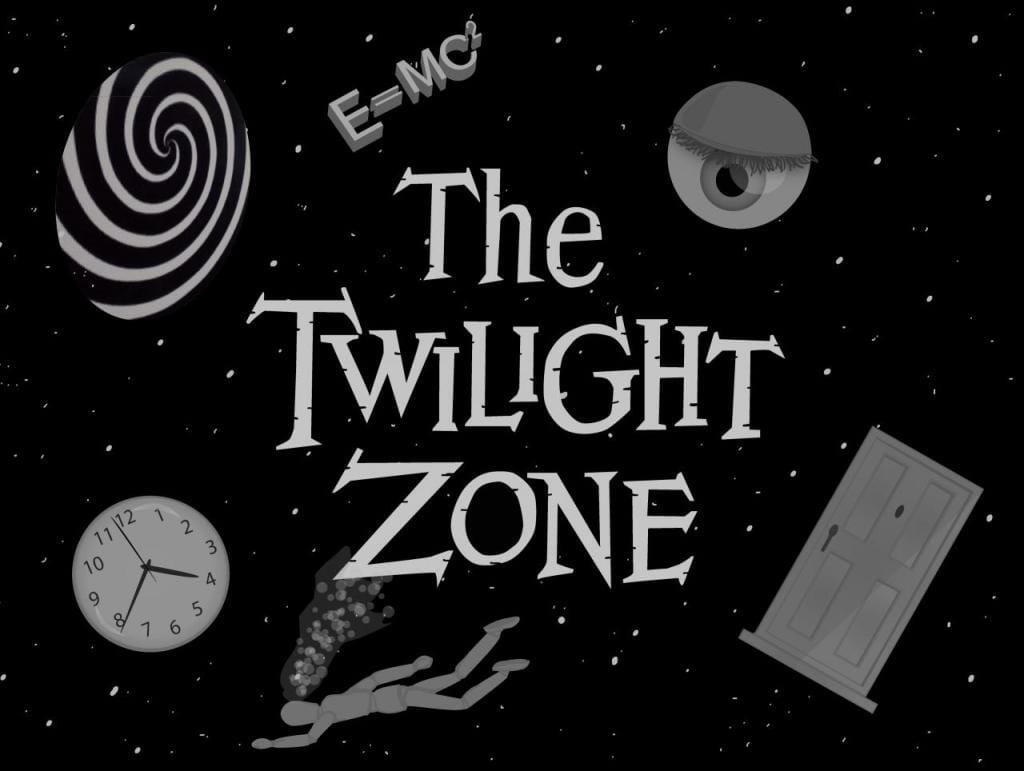- IF: Imagination and Fantasy
- Posts
- Exploring Twilight Zone's 'Shaggy God Stories' in Science Fiction
Exploring Twilight Zone's 'Shaggy God Stories' in Science Fiction
When Science Fiction Gets a Divine Twist

Introduction
Have you ever found yourself watching a science fiction movie or reading a futuristic novel and felt an eerie sense of familiarity as if the story echoes one you've heard before? It's a common phenomenon, especially when these tales blend with themes inherent in ancient myths or biblical narratives. This intersection is vividly captured in what sci-fi enthusiasts call “Shaggy God Stories”—an engaging yet peculiar narrative form where science fiction meets mythological retelling. In this blog post, we'll unpack this concept and explore a prime example from the classic series, The Twilight Zone.

Shaggy God Stories: A Sci-Fi and Myth Fusion
The term "Shaggy God Story", coined by author Brian Aldiss, signifies a science fiction tale that crudely rationalizes biblical myths through a futuristic lens. It mirrors the structure of a 'shaggy dog story', leading to a climactic revelation that recasts familiar tales, offering new interpretations.
Imagine a story where scientists planting life forms on a barren planet leads to the shocking discovery that those life forms are Adam and Eve. Such twists imbue these narratives with both familiarity and surprise, framing age-old stories in pseudo-scientific contexts that prompt us to rethink our understanding of these ancient myths.
Diving Into the Twilight Zone: 'Probe 7, Over and Out'
A quintessential example of the Shaggy God Story is found in The Twilight Zone episode "Probe 7, Over and Out," from its fifth and final season. This classic episode will be aired this weekend as part of a SYFY marathon—perfect timing for fans both new and old.
The plot revolves around Colonel Cook, portrayed by Richard Basehart, who crashes and becomes stranded on an alien yet eminently livable planet as his own home faces unchecked disaster. Faced with imminent thermonuclear destruction on his planet, Colonel Cook is the potential last survivor of his civilization, attempting a fresh start amidst harsh new beginnings.
A chance encounter with Norda, another isolated traveler played by Antoinette Bower, sets the scene for a classic tale of survival. Despite an initial language barrier creating tension, both quickly realize that their chances greatly improve by working together.

Echoes of Eden: Layers of Symbolism and Revelation
As the narrative unfolds, Cook describes his surroundings "like a lush garden”, echoing biblical themes of the Garden of Eden. In the spirit of modern Shaggy God stories, their names are pivotal—Cook introduces himself as Adam, and Norda’s reveal that her real name is Eve.
This reimagined genesis cleverly subverts expectations. Instead of falling into temptation, their shared journey becomes one of mutual understanding and cooperation. It leaves viewers pondering profound questions about retelling archetypal stories and injecting them into futuristic settings.

Reflections and Patterns: Timeless Themes in Science Fiction
The theme of creation and new beginnings pervades the narrative. Yet, it is shadowed by the potential to repeat humanity’s prior mistakes—a testament to the idea that things might not be easily undone, despite a new world and a seemingly clean slate. The story poses whether humans have inherent destructive tendencies, questioning if a new Eden alone suffices to escape humankind's fundamental flaws.
Conclusion
“Probe 7, Over and Out” captures the quintessential Shaggy God story with a thoughtful Twilight Zone twist. By reframing the creation myth in a sci-fi light, it invites reflection on why these stories endure and resonate across different media and times.
As you ponder these twists in narrative and reflect on humanity's enduring nature, the thought arises: Does a fresh start promise a different ending, or are some patterns just inevitable? These are the questions left for your contemplation, highlighting ever-present revelations within the intertwined nature of science fiction and age-old myths.
Listen to the full podcast episode here!